Google's new personalized search raises antitrust concerns
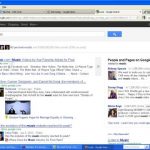
Google is diving deeper into personalized search results, debuting a feature called "Google Plus Your World". But the debut of the service, which pulls results from your own content plus social circles from Google-owned services may catch the ire of regulators.
The company is fighting off calls on Capitol Hill over antitrust claims, and in September found itself testifying in front of the Senate Judiciary subcommittee on Antitrust, Competition Policy and Consumer Rights. Senators wanted to gauge the power the Mountain View, Calif. company has over the search industry, and favoring Google's own service is sure to raise questions.
7 things I really don't want to see at CES
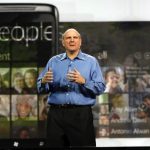
Next week, the biggest trade show of the year opens in Las Vegas. Tens of thousands of people will make the annual pilgrimage to Las Vegas for the Consumer Electronics Show. My inbox already bursts with press releases, and it can only get worse. I hate CES. Trade shows like this one are anachronisms. Microsoft is right to bow out after this year. There's too much noise and too many vendors trying to yell louder than the next one. Logistically, from a reporter's perspective, it's a nightmare to coordinate. There's too much to cover and not enough time.
So in that spirit, I've come to spit on CES and offer a list that juxtaposes colleague Tim Conneally's. Earlier this week, he posted: "10 things I genuinely want to see at CES 2012". Tim offers an excellent list of want-to-sees. I'm taking a different tact: Things I don't want to see -- or hear about -- during CES 2012.
10 Things I genuinely want to see at CES 2012

I usually come into the Consumer Electronics Show every year expecting a few things, being disappointed by the lack of a few things, and being surprised by a few things I didn't expect. Here's the list of what I'm hoping to see this year.
As these things happen or fail to happen at CES 2012, I'll chalk them up as victories or defeats, and you'll hopefully get an overall feeling for the amount of heartburn I'll have when I head back here to the East Coast at the end of the week.
10 resolutions Microsoft should make for 2012

It's my annual ritual. Rather than make predictions for the new year, I arrogantly tell Companies X, Y or Z what they should do. This year, I asked colleague Ed Oswald to offer Apple resolutions, and Google's will come from you. I've got Microsoft, but, sadly, my list looks too much like last year's, and that's disturbing. If the world doesn't end for the rest of us in 2012, as Mayans predicted, it could for Microsoft, if CEO Steve Ballmer and top execs don't take the post-PC era more seriously.
In mid December 2010, I warned that "2011 will be make or break" for Microsoft. Viewed from perception, the year was more "make", as Microsoft marketing, successful BUILD conference and Xbox Kinect helped lift a long sagging image. Last year I put forth: "Perception management is a good 2011 priority for Microsoft, with no new versions of its flagship products planned for the year. The company needs to give consumers, developers and IT Pros reasons to get excited again about Microsoft software and OEM products". There, Microsoft succeeded.
10 resolutions Apple should make for 2012
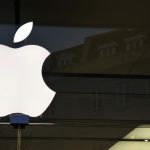
This is the first year Apple will operate without its co-founder and leader Steve Jobs. To move forward without him, what does the company need to do in the new year? While I've never fancied myself a prognosticator, I do have a few suggestions on what the Cupertino, Calif. company needs to do.
Some have to do with changing the way Apple works and does business; others require some hard decisions on Apple's product lines. Either way, 2012 will give us the first glimpse whether or not Apple can move on from its past and iconic leader.
US Chamber of Commerce hack shows need for vigilance

This week’s high-profile hack of the US Chamber of Commerce underscores the inadequacy of today’s security policies and technologies. With the holidays quickly approaching and IT staffs stepping away from offices to spend time with family and friends, we face increased vulnerabilities and security threats. We should be more vigilant than ever, reflecting on national security policies and how we can better protect our sensitive data.
Stories like this continue to point to the fact that we need a broad, across-the-board approach. We need to collaborate and inform when breaches take place. We need diplomatic support to reduce the desire or economic benefit to steal. It is time to have a Y2K approach to cyber protection. That means investment and support from the top down.
Windows Phone would change my life

Since its announcement, I’ve been an avid fan of Windows Phone. So much that I even created a dedicated news website when it first emerged (Winphonia.com -- no longer active). This was all without ever having held a WP7 device in my hands or even seeing one in person. One of the aspects I genuinely like about Windows Phone is the fact that you can simply glance at the home screen, or the many hubs, and see all of life’s important events with just a peek.
I personally know people who’ve call it non-functional, or too simplistic, or even archaistic. But those people have not done their research. What I see is a phone that lets me tack on all of life’s significant events and priorities in a place where I’ll see it in the forefront.
Confessions of a 'SOPA Dodger,' or why Kaspersky quit the BSA

The US blogosphere has become increasingly alarmed by the new Anti-Piracy Act – Stop Online Piracy Act or SOPA. Discussions of the topic are, to put it mildly, quite frank, with comments like: "These idiots are coming for your internet."
What is SOPA? It is support for and development of something that is currently very relevant – the protection of intellectual property. Ladies and gentlemen, this really is important! "Thou shalt not steal," as the Bible says! An author – or more often than not, a team – spends sleepless nights writing a book, composing music, shooting a film, creating software or testing software packages. Doesn’t that deserve a financial reward? Yes or no? Think before you answer – someone could well ask the same question about your profession… So?
Carrier IQ's response answers nothing

We have some division here at BetaNews regarding Carrier IQ and reporting about its tracking software. On one side there's the "me-too" defense -- that software stealthy hidden on smartphones sending information back to Carrier IQ or cellular carriers is no worse than what other companies do. That it's irresponsible to report keylogging behavior based on researcher Trevor Eckhart's blog post and YouTube video. That early reporting was "sloppy" and Eckhart is suddenly "quiet". Dog poop.
Over the last couple days, Carrier IQ finally responded to the maelstrom of controversy. But the response falls short. Carrier IQ fails to address the most troubling aspect about Eckhart's demonstration: Capturing data from keystrokes, nor does it answer why so much information is collected. Carrier IQ's defense is something like: "We don't look at the naked person. Not us". It's the "if a tree falls in the forest" defense. "We didn't listen, so it didn't happen". If there's anything "sloppy" about the news reporting, it's that not enough journalists dig deep enough. There's nothing unfair here.
Don't blame tablets for slow PC sales

This is one of the more uncomfortable years the PC ecosystem has ever endured. It started out sluggish, and never really recovered. Early on, Intel’s CEO chided market researchers who didn’t echo his call for double-digit unit growth. (Full disclosure: so did I.) AMD’s board booted its leader in part for taking much the same stand.
Slow growth alone, though, isn’t what draped 2011 in a soot-colored hue. The industry has seen its share of ups and downs. But this year is different. Because while PC sales were under-performing, shipments of these new things, media tablets, skyrocketed. Coincidence?
Windows Phone 7 needs a Christmas miracle

I've got a soft spot for Windows Phone. The operating system is classy, vibrant, intuitive and refreshing -- the latter particularly compared to Android and iOS. Windows Phone also is a bleeding failure, as I predicted it would be in February 2010 -- when calling the platform a "lost cause". I grudgingly admit to being right. Ah hum. Only Nokia can save Windows Phone now. They swim for land or drown together.
Yesterday, Nielsen released US smartphone operating system share at end of third quarter. For Android and iOS: 42.8 percent and 28.3 percent, respectively. Windows Phone: 1.2 percent, which is less than Symbian (1.7 percent) -- the operating system WP will replace on Nokia handsets, which have far less visibility than does WP7 in the United States; that's sadist commentary of all. Windows Mobile share is 6.1 percent, and that's a good place for Microsoft to really target. Imagine if all those customers could convert to smartphones running the newer software.
Microsoft is in trouble
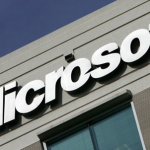
From a technology perspective, Thanksgiving 2011 ranks as one of my most insightful and frustrating holidays ever. I'm an enthusiast who wants to see Microsoft make a strong comeback among consumers. Unfortunately, three Turkey Day incidents left me disheartened.
Microsoft has got a big perception problem.
Apple is the new Dell
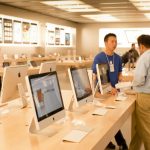
I sat eating lunch with coworkers when we saw the news over the wire. Dell announced the end of retail sales, taking its business direct to customers -- that was 1994. We laughed about the craziness. Compaq dominated the PC market, leveraging a huge partner network of dealers, resellers and retailers. Cutting out the middleman meant more margin for Dell, and presumably lower costs for businesses and consumers, but how would the brand maintain visibility without shelf space? Dell direct seemed destined to failure.
Succeed it did, making Dell the No.1 PC maker, based on shipments, by decade's end. Dell didn't just go direct but redefined PC distribution, manufacturing and marketing. The Austin, Texas-based company later adopted real-time manufacturing logistics that made competing operations from Compaq, HP and IBM look antiquated. While their managers guessed how many PCs to produce and ship to the channel, Dell provided component suppliers access to orders in real time, which kept the company from over-ordering, dramatically cut component costs and let customers configure exactly what they wanted. More than a decade after Dell's high (and today's subsequent low), Apple distribution, manufacturing and marketing is the envy of competitors. Both companies achieved similar supply-chain dominance, but theirs is a fascinating study of similarities and contrasts.
11 things Microsoft should be thankful for in 2011

This year I revive my annual "give thanks" series -- what Microsoft has to be grateful for this Thanksgiving Day. In 2006, "employee bloggers" topped the list and "Google's woes", following a year-long collapse of the search giant's shares, in 2008. What about 2011?
I present the list in reverse order of importance. No. 1 is the last item and the reason for which Microsoft should give most thanks this year (so far).
The Cloud isn't elastic enough

By now, we all can see that the Internet will become the dominant media distribution platform.
We can easily imagine (and expect) that all content will be digitized and distributed online. Every song, every movie, every video game, every software program, every live television event, every business document and more will be instantly searchable and retrievable via a range of connected devices. It will all be magically available to stream or download on-demand through "the Cloud".
This was the dream when I started my first Internet business in 1995. Now, people think it is the reality. And, while we are making great progress towards such a future, unfortunately, we are not there yet. The demand for online media consumption is simply too great and is growing even faster than we can deploy cloud services to meet it.
Recent Headlines
Most Commented Stories
BetaNews, your source for breaking tech news, reviews, and in-depth reporting since 1998.
© 1998-2025 BetaNews, Inc. All Rights Reserved. About Us - Privacy Policy - Cookie Policy - Sitemap.